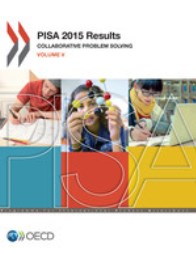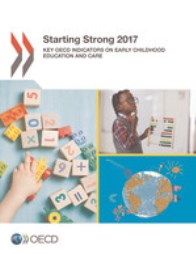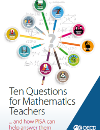Early childhood and schools
Focus
-
The OECD Teaching and Learning International Survey (TALIS) - 2013 Results
How can countries prepare teachers to face the diverse challenges in today’s schools? TALIS helps answer this question by asking teachers and school leaders about their working conditions and the learning environments at their schools.
Read more -
PISA for Development
Through our PISA for Development project, adapted survey instruments will be developed to allow developing countries to assess 15-year-olds' skills in the key subjects of reading, math and science, while at the same time providing countries with an opportunity to build their capacity to manage student assessment and improve their school systems.
Read more -
PISA-based Test for Schools
The PISA-based Test for Schools is a student assessment tool geared for use by schools and networks of schools to support research, benchmarking and school improvement efforts.
Read more
PISA 2015 ResultsPISA 2015 Results (Volume V) - Collaborative Problem Solving examines students’ ability to work with two or more people to try to solve a problem.and also explores the role of education in building young people’s skills in solving problems collaboratively. PISA 2015 Results (Volume IV): Students’ Financial Literacy PISA 2015 Results (Volume III): Students' Well-Being PISA (Volume II): Policies and Practices for Successful Schools PISA (Volume I): Excellence and Equity in Education
|
 |
Starting Strong 2017 - Key OECD Indicators on Early Childhood Education and CareWith around 45 charts and data for the 35 OECD countries and a number of partner countries, this publication includes a great deal of new material. It offers new data on ECEC provision and intensity of participation for children under the age of three (based on an improved typology of settings). It also presents new indicators on the profile of ECEC staff (e.g. level of qualification, teacher salary and organisation of working time) and on equity in access to ECEC. New PISA 2015 analyses help highlight the relationship between the number of years of ECEC and academic performance at age 15, and the effects of ECEC attendance on health and well-being, and mothers’ employability.
|
 |
Recent reports |
Top blog posts |
||||||
|
Succeeding with resilience – Lessons for schools How to prepare students for the complexity of a global society What does teaching look like? A new video study Busting the myth about standardised testing Educating our youth to care about each other and the world
|
||||||
| More blog posts | |||||||

